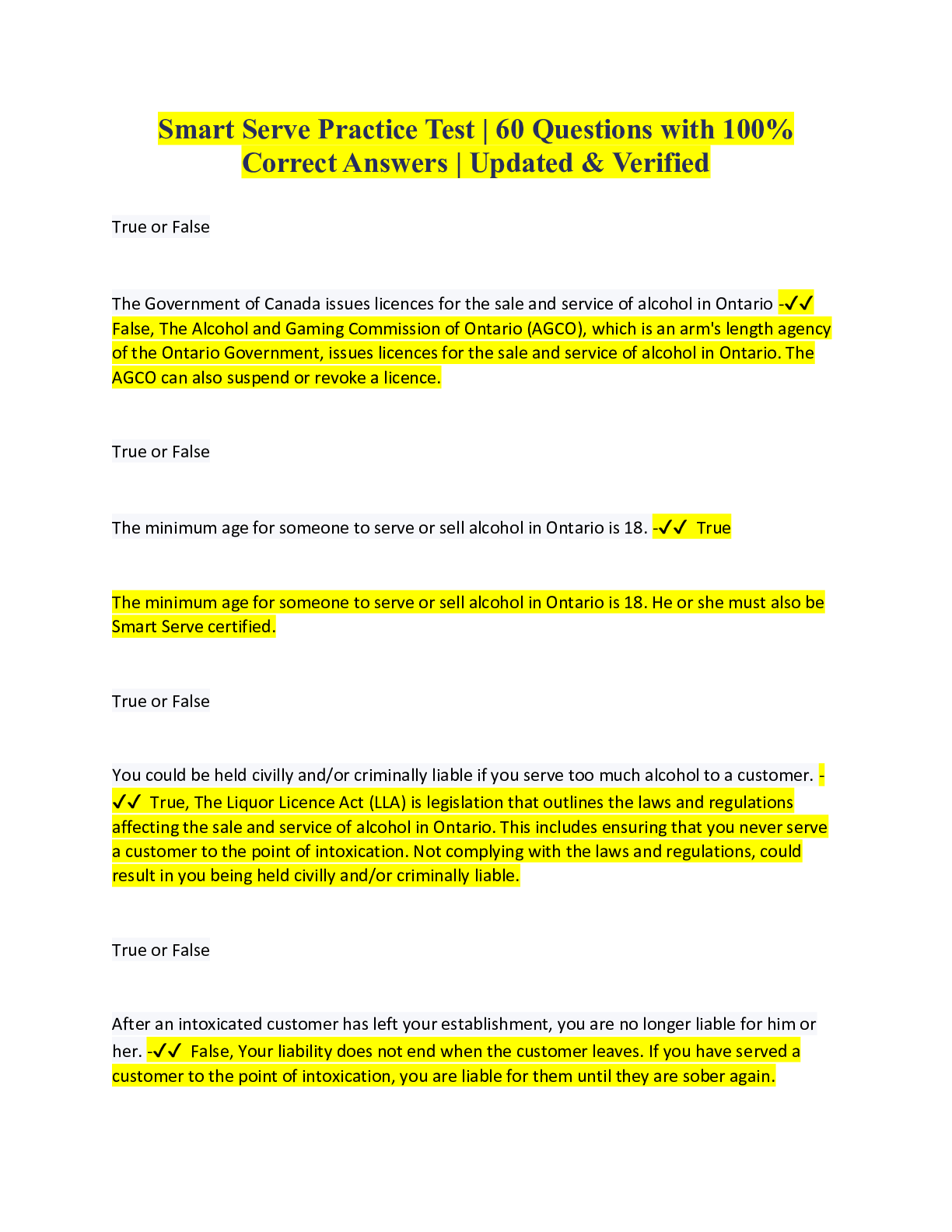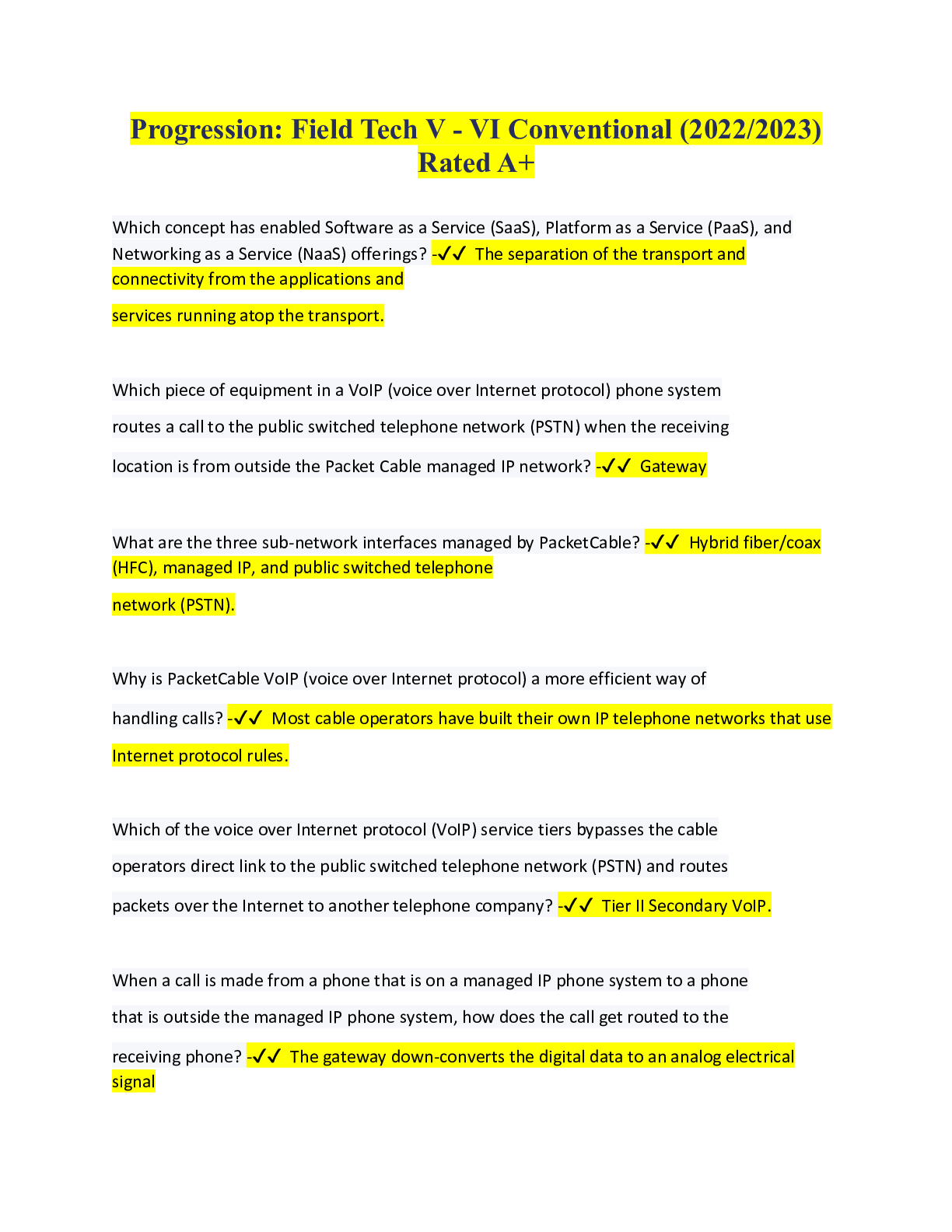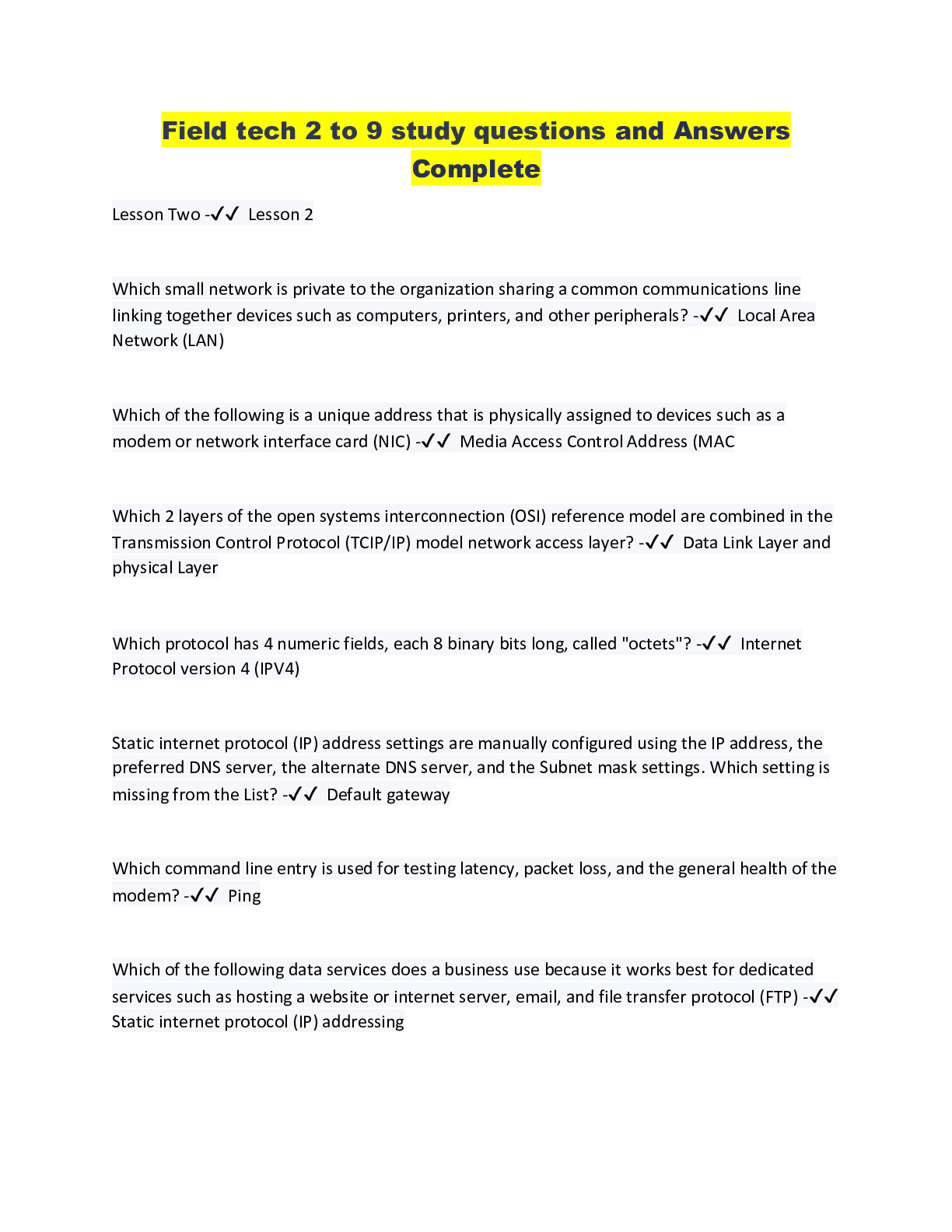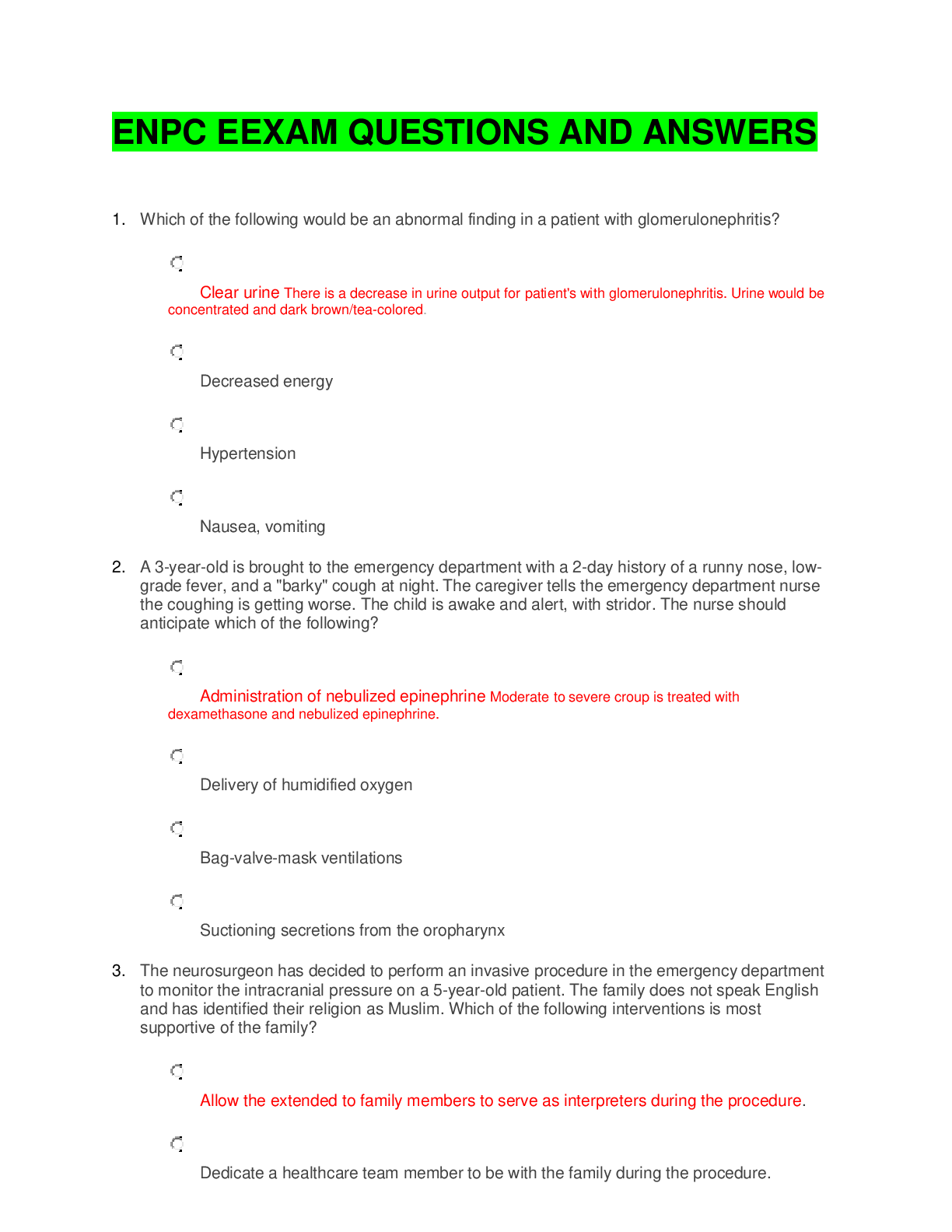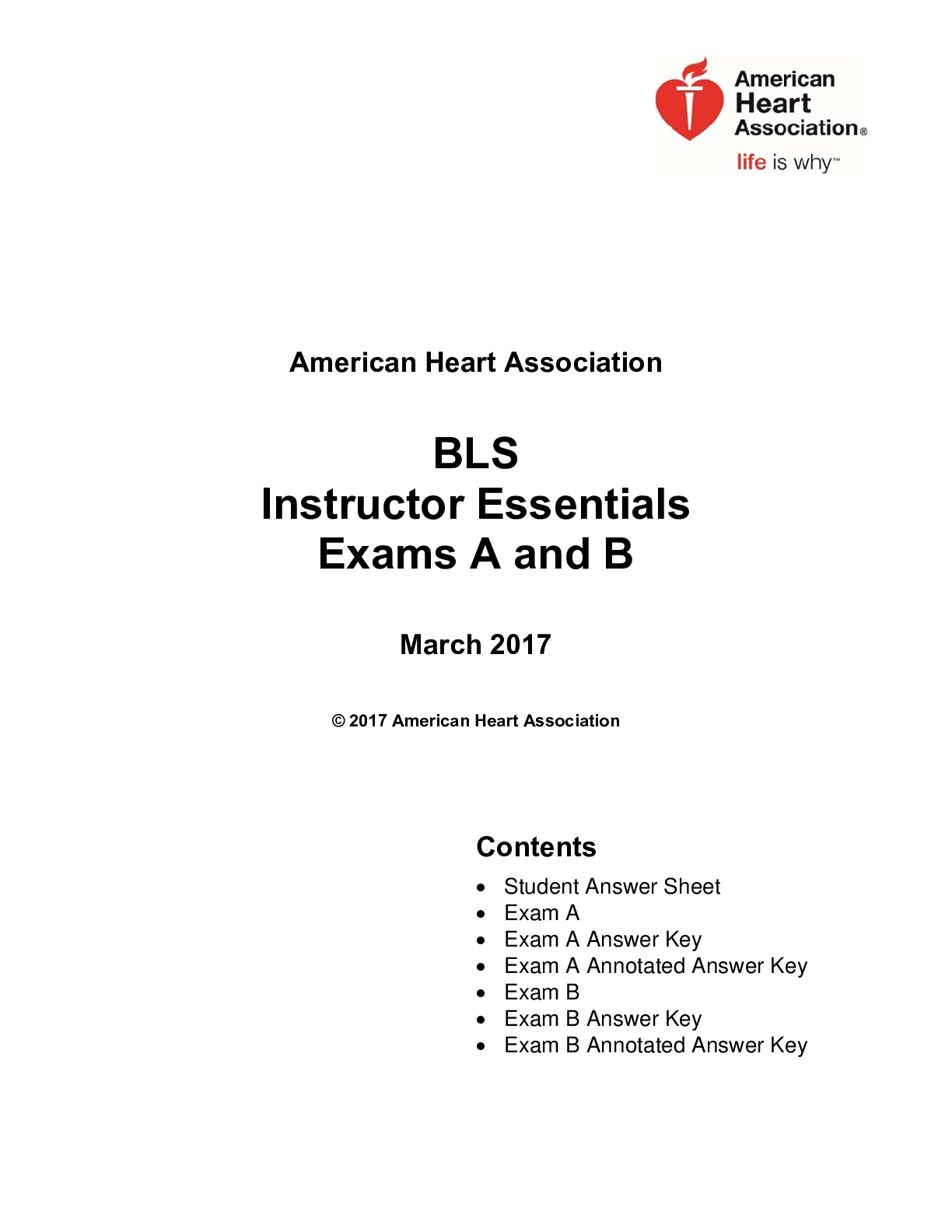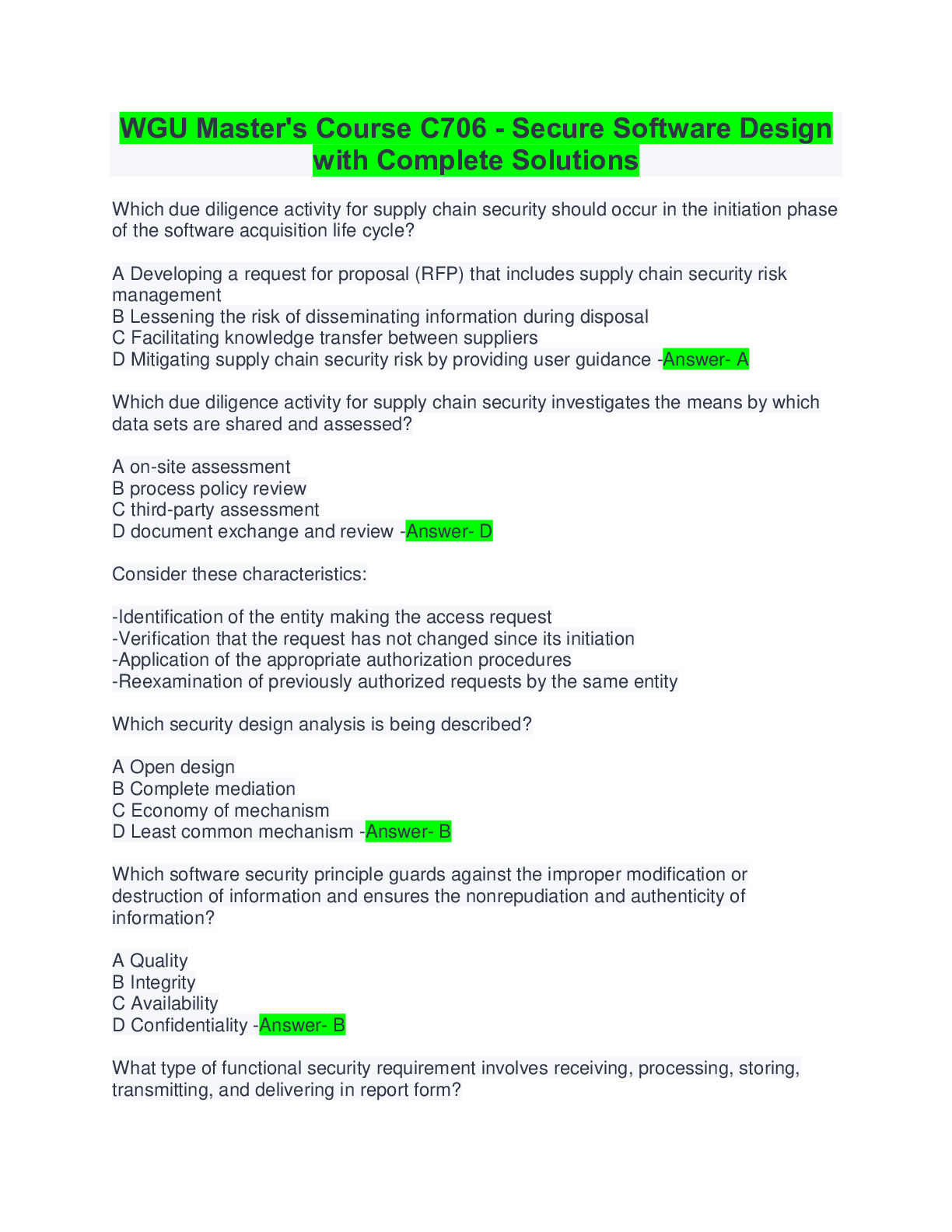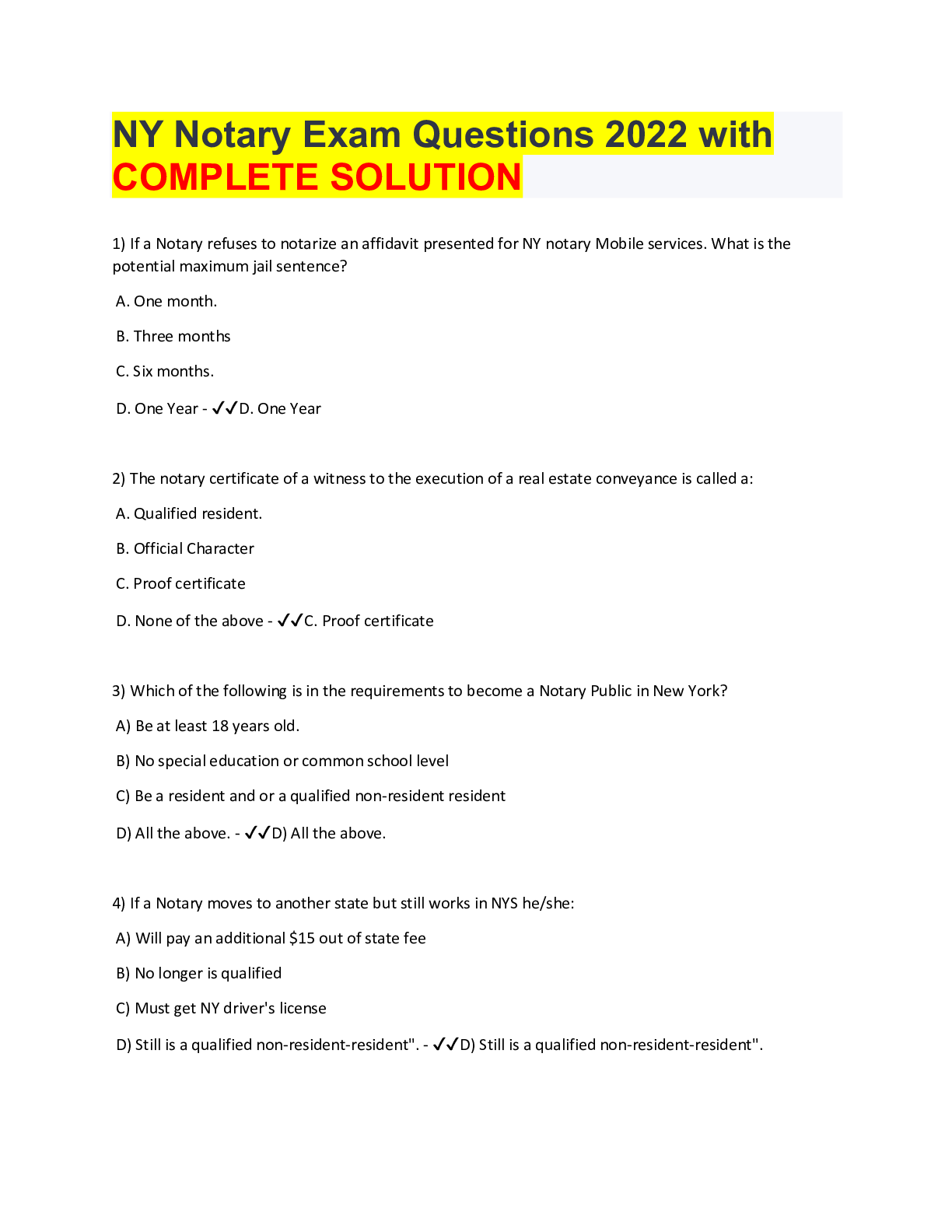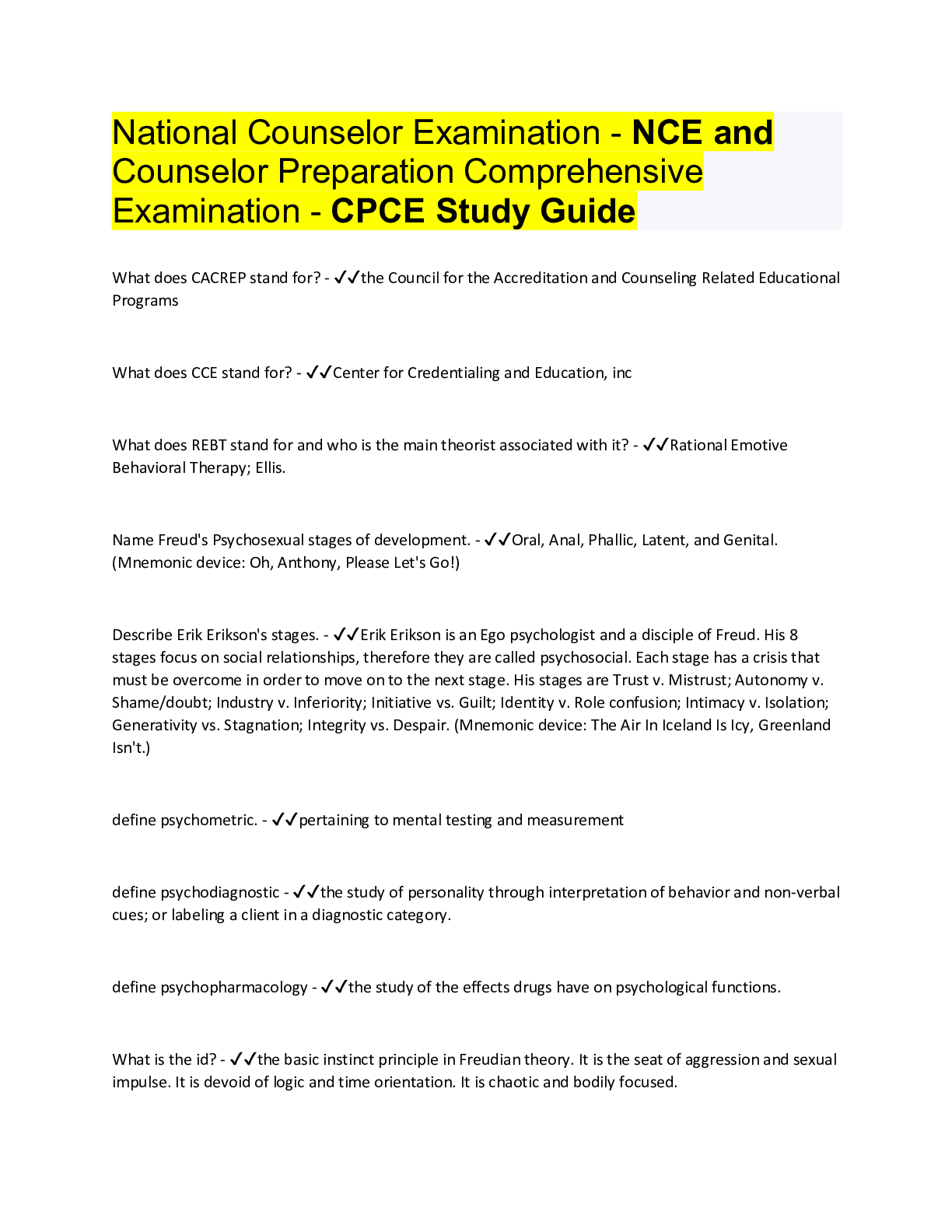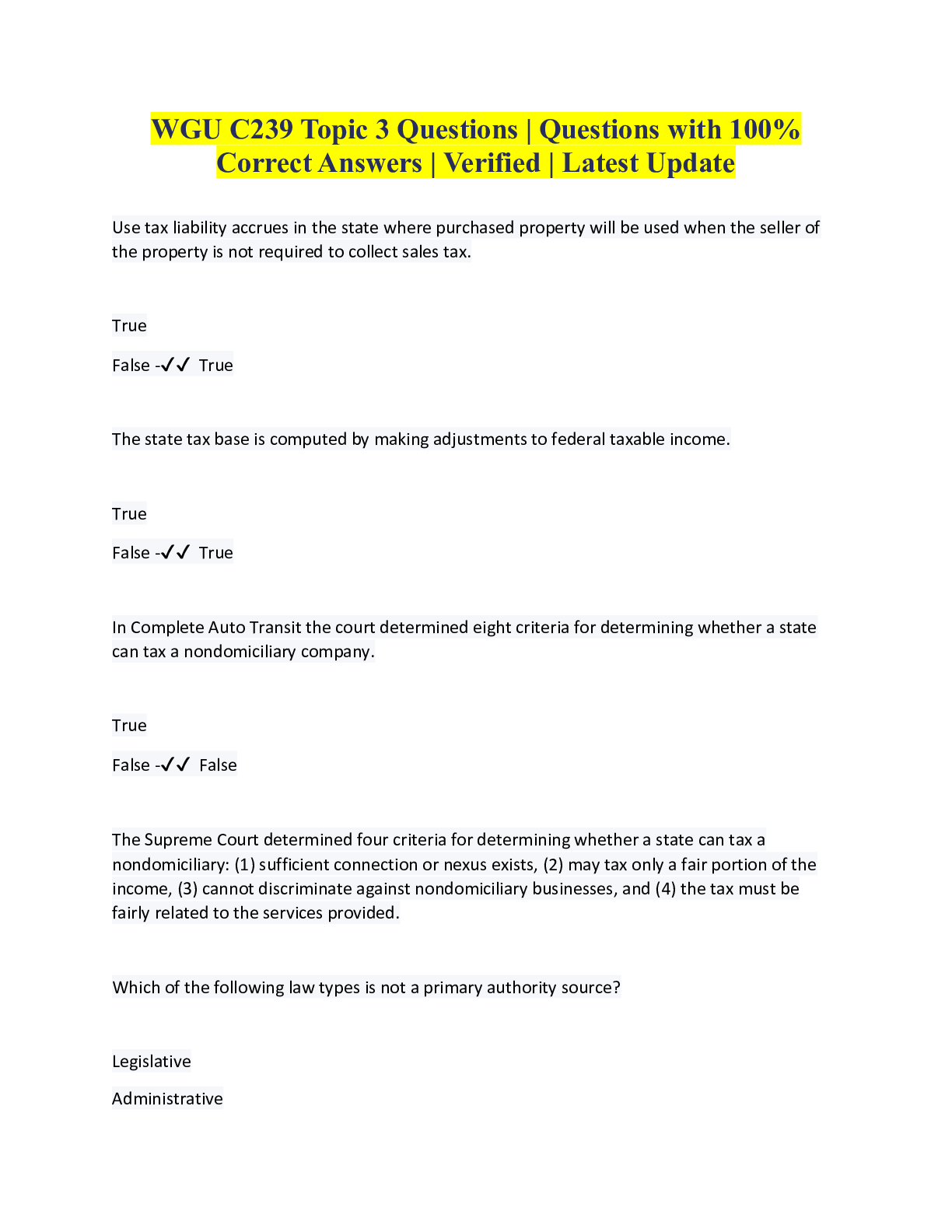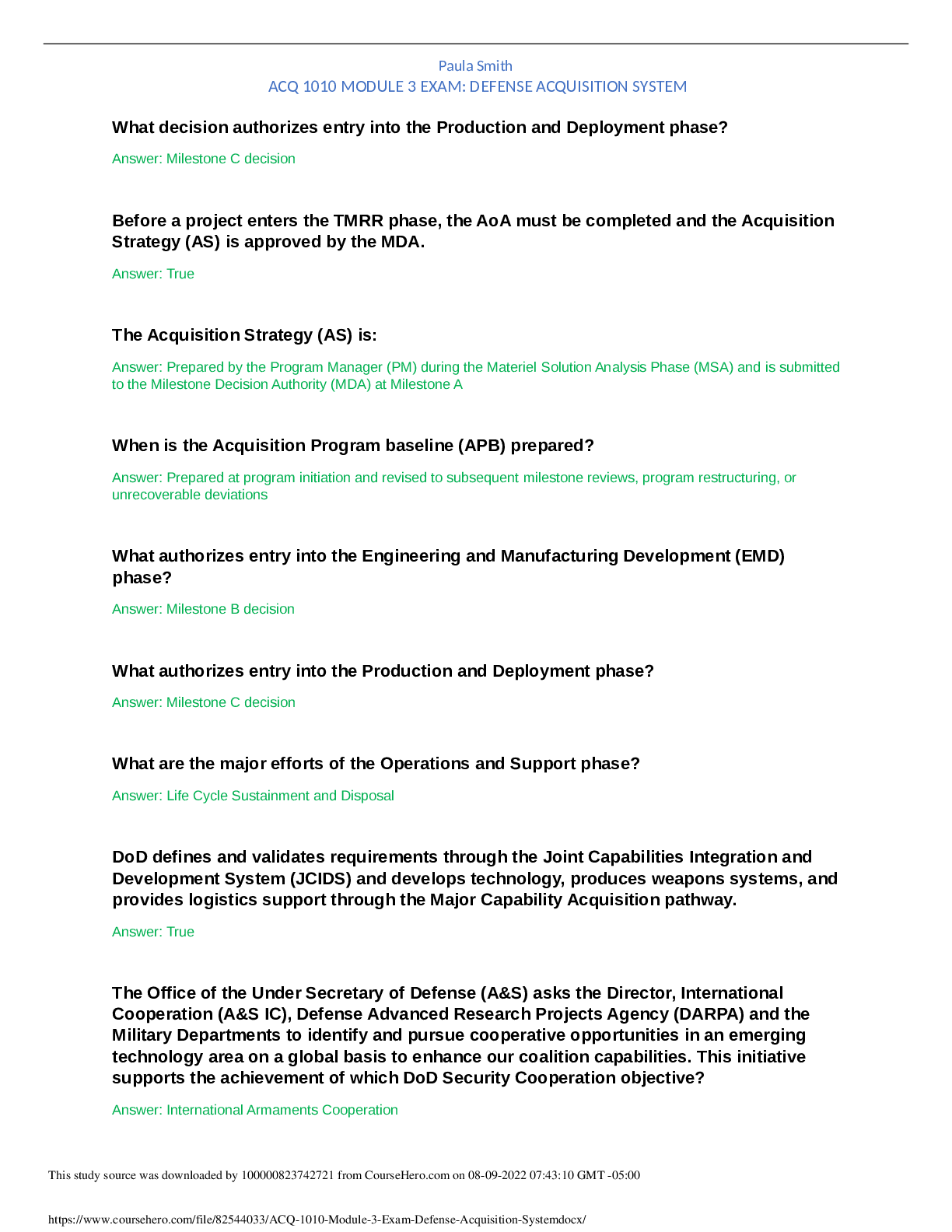*NURSING > QUESTIONS & ANSWERS > Foundations of Maternal-Newborn and Women's Health Nursing 7th Edition Murray Test Bank: Chapter 20: (All)
Foundations of Maternal-Newborn and Women's Health Nursing 7th Edition Murray Test Bank: Chapter 20: Assessment of the Normal Newborn Foundations of Maternal-Newborn & Women's Health Nursing, 7th Edition. explained answers.
Document Content and Description Below
1. The hips of a newborn are examined for developmental dysplasia. Which clinical finding indicates an incomplete development of the acetabulum? a. Negative Barlow test b. Equal knee heights c. Ne... gative Ortolani sign d. Thigh and gluteal creases are asymmetric. ANS: D Asymmetric thigh and gluteal creases may indicate potential dislocation of the hip. If the hip is dislocated, the knee on the affected side will be lower. A positive Ortolani sign yields a clunking sensation and indicates a dislocated femoral head moving into the acetabulum. During a positive Barlow test, the examiner can feel the femoral head move out of the acetabulum. DIF: Cognitive Level: Understanding OBJ: Nursing Process Step: Assessment MSC: Patient Needs: Health Promotion and Maintenance 2. Which newborn reflex is elicited by stroking the lateral sole of the infant’s foot from the heel to the ball of the foot? a. Babinski b. Stepping c. Tonic neck d. Plantar grasp ANS: A The Babinski reflex causes the toes to flare outward and the big toe to dorsiflex. The stepping reflex occurs when infants are held upright, with their heel touching a solid surface, and the infant appears to be walking. The tonic neck reflex (also called the fencing reflex) refers to the posture assumed by newborns when in a supine position. Plantar grasp reflex is similar to the palmar grasp reflex; when the area below the toes is touched, the infant’s toes curl over the nurse’s finger. DIF: Cognitive Level: Application OBJ: Nursing Process Step: Assessment MSC: Patient Needs: Health Promotion and Maintenance 3. Infants who develop cephalohematoma are at an increased risk for a. infection. b. jaundice. c. caput succedaneum. d. erythema toxicum. ANS: B [Show More]
Last updated: 2 years ago
Preview 1 out of 10 pages

Buy this document to get the full access instantly
Instant Download Access after purchase
Buy NowInstant download
We Accept:

Reviews( 0 )
$7.00
Can't find what you want? Try our AI powered Search
Document information
Connected school, study & course
About the document
Uploaded On
Jun 25, 2021
Number of pages
10
Written in
Additional information
This document has been written for:
Uploaded
Jun 25, 2021
Downloads
0
Views
110

